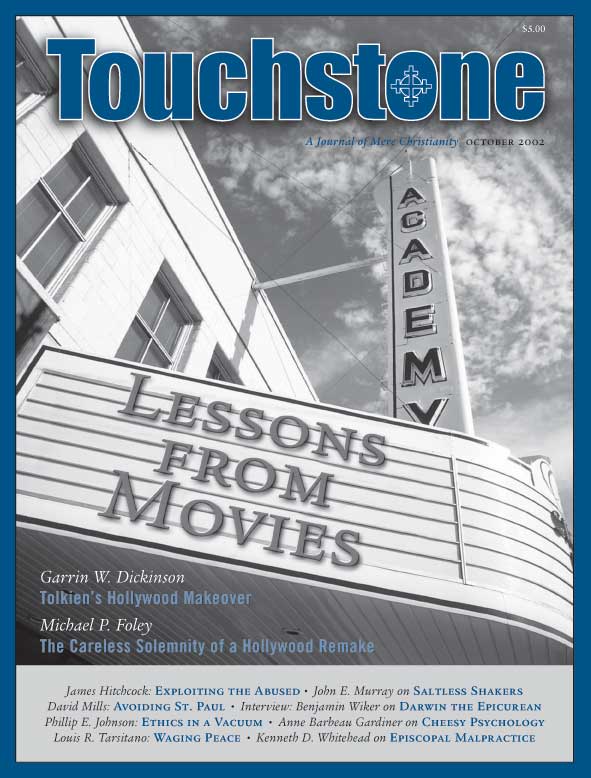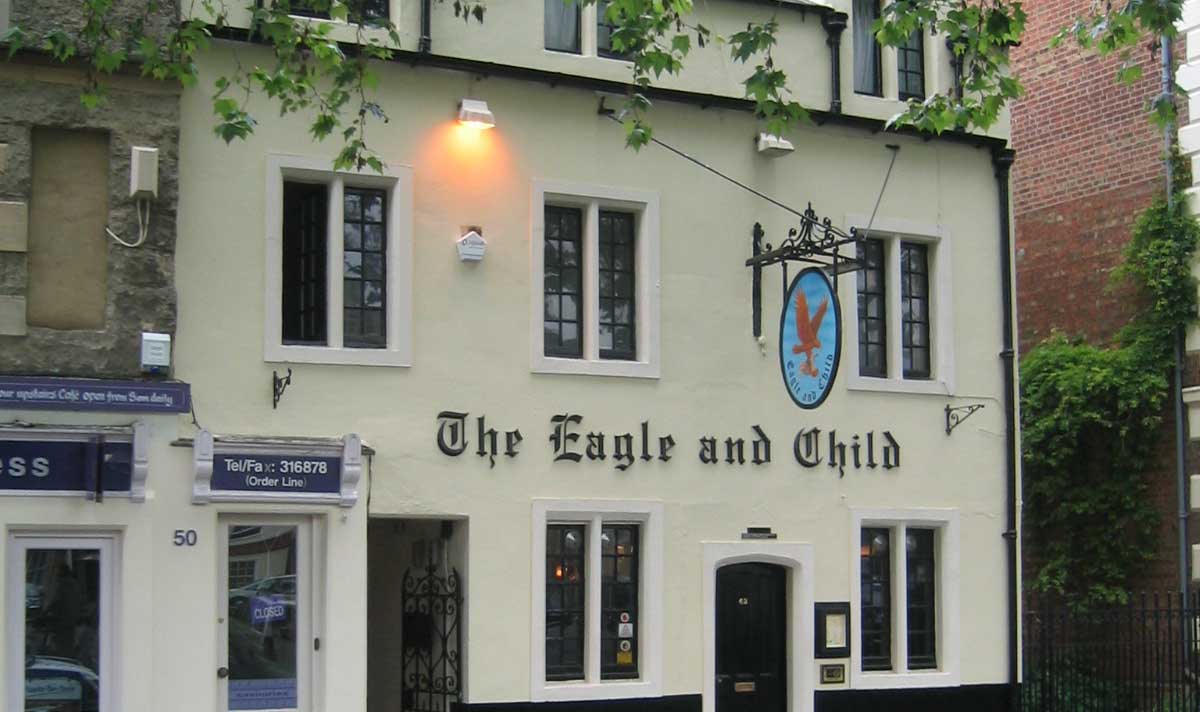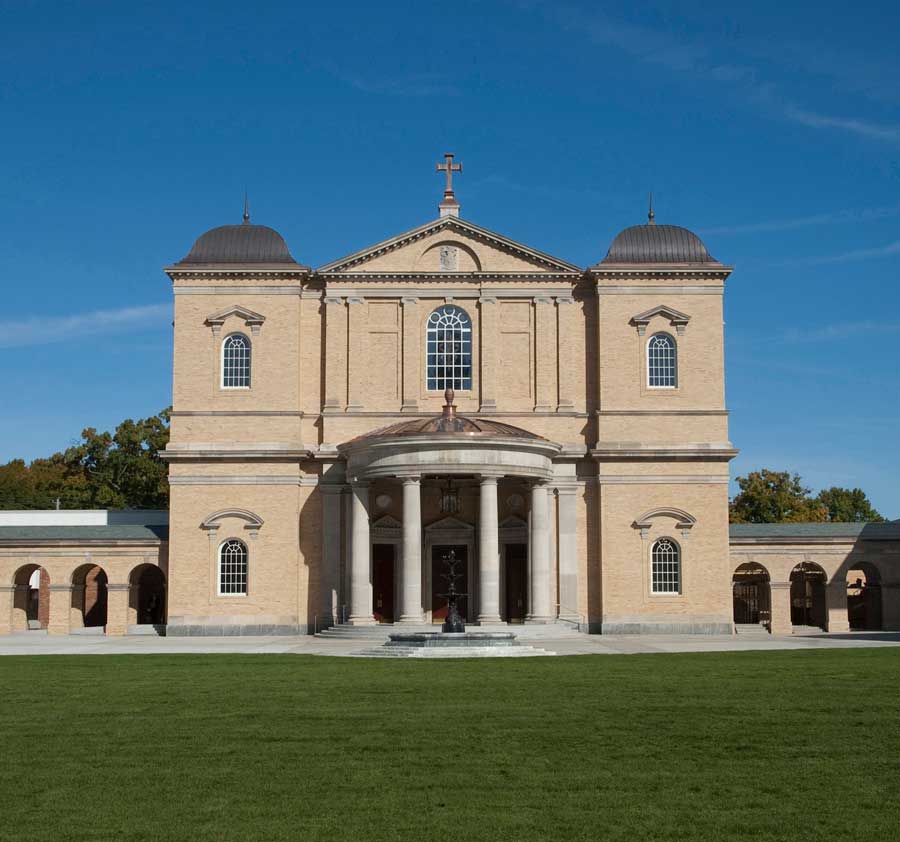Exploiting the Abused
Not for some years will we know the full effects of the Catholic bishops’ meeting in June in Dallas. The horrendous nature of clerical pedophilia has finally been acknowledged and, like other injustices long ignored, will henceforth receive almost obsessive attention. Procedures have been adopted, but it remains to be seen how they are implemented in particular dioceses. In one important respect I think the meeting was a misuse of a unique opportunity, and that was in the bishops’ choice of speakers.
Certainly the spokesmen for sex-abuse victims deserved to be heard. Indeed, they can hardly be heard too often, having been ignored for so long. But several of the invited speakers did not address the issue at all, even as they pretended to do so. Two speakers who had nothing personally to do with pedophilia instead used the occasion to promote a liberal Catholic agenda that has been around for decades, an agenda that offers no particular help with the problem at hand.
In effect the message was, “The bishops have failed; now the laity must take charge.” I think the bishops, or many of them, have indeed failed, as they themselves now acknowledge, and it is an open question whether they will do better in the future. But there is no compelling reason to think that giving more power to lay people would improve the situation.
In effect the two speakers said to the bishops, “We told you so,” but in fact that claim was false. Until quite recently, when pedophilia started becoming a public issue, Catholic liberals had no more to say on the subject than did anyone else. On a list of the key liberal issues of the past 35 years, pedophilia only began to show up, as an afterthought, once it had gotten into the media.
If by lay “empowerment” is meant that lay people should have a role in dealing with pedophilia, no one disagrees. Responsible lay people should certainly be part of the process. But the liberal lobbyists went much farther, virtually calling on the bishops to effect a revolution across the board. One of them sneered at the statement, “The Church is not a democracy,” and the other broadly hinted that the bishops should disregard the Holy See in making decisions.
But it is merely common sense to recognize that giving more power to lay people would in itself achieve nothing. Everything would depend on who the lay people were. Just as there is no “typical” American, so there is no “typical” Catholic. If bishops surrendered much of their authority to lay people, the result might be no better than the bishops themselves have achieved.
The figure “34 years” was used to date the bishops’ supposed lack of regard for the laity, a date obviously chosen to indicate the papal encyclical Humanae Vitae, which reaffirmed the church’s teaching on birth control. But the logic of this is preposterous, as though changing the teaching on birth control would somehow serve to prevent pedophilia. Liberal Catholics still do not acknowledge that pedophilia was made possible in part because of the sexual revolution of the 1960s, and the bishops’ failure was hardly that of upholding strict standards of sexual morality. (How many pedophiles support Humanae Vitae?)
The lobbyists made the predictable argument for “empowering” women, merely a variation on their claims about the laity. Once again, there is no such phenomenon as “women” if by that is meant females all of whom think and act alike, and if women were given greater authority in the Church, the results would depend entirely on which women were chosen. (From the media I have noticed that it is certain women in particular who continue to express loyalty and support for accused pedophiles.)
In this bleak moment in the history of American Catholicism, it is regrettable indeed that some of the people invited to address the bishops chose to exploit these sufferings in order to push their own stale agenda.
—James Hitchcock
James Hitchcock is Professor emeritus of History at St. Louis University in St. Louis. He and his late wife Helen have four daughters. His most recent book is the two-volume work, The Supreme Court and Religion in American Life (Princeton University Press, 2004). He is a senior editor of Touchstone.
subscription options
Order
Print/Online Subscription

Get six issues (one year) of Touchstone PLUS full online access including pdf downloads for only $39.95. That's only $3.34 per month!
Order
Online Only
Subscription

Get a one-year full-access subscription to the Touchstone online archives for only $19.95. That's only $1.66 per month!
bulk subscriptions
Order Touchstone subscriptions in bulk and save $10 per sub! Each subscription includes 6 issues of Touchstone plus full online access to touchstonemag.com—including archives, videos, and pdf downloads of recent issues for only $29.95 each! Great for churches or study groups.
Transactions will be processed on a secure server.
more from the online archives
calling all readers
Please Donate
"There are magazines worth reading but few worth saving . . . Touchstone is just such a magazine."
—Alice von Hildebrand
"Here we do not concede one square millimeter of territory to falsehood, folly, contemporary sentimentality, or fashion. We speak the truth, and let God be our judge. . . . Touchstone is the one committedly Christian conservative journal."
—Anthony Esolen, Touchstone senior editor










